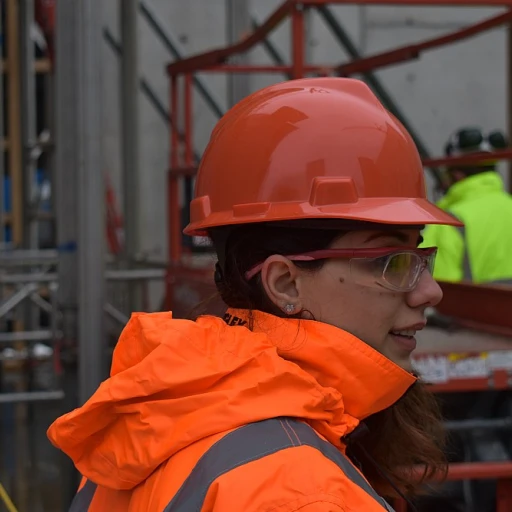
Understanding what background checks typically include
What Information Is Typically Included in a Background Screening?
When employers conduct a background check during the hiring process, they are looking to verify a range of details about a candidate. The goal is to confirm the accuracy of the information provided and assess any potential risks. Background checks can vary depending on the job, industry, and employer, but most checks include several core components:
- Employment history verification: This is a key part of most background screenings. Employers want to confirm job titles, dates of employment, and sometimes reasons for leaving previous jobs. This helps ensure that the candidate’s work history matches what they have claimed.
- Criminal records check: Many employers check for criminal history to assess whether a candidate poses any risk to the workplace or customers. The depth of this check depends on the role and local laws.
- Education verification: Some positions require specific degrees or certifications, so employers may verify educational background as part of the process.
- Credit checks: For roles involving financial responsibility, a credit check may be included to evaluate the candidate’s financial reliability.
- Social security number validation: This step helps confirm the candidate’s identity and eligibility to work in the country.
- Reference checks: Employers may contact previous employers or professional references to learn more about the candidate’s work performance and character.
- Social media screening: Some employers review public social media profiles to get a sense of the candidate’s online presence and behavior.
It’s important to note that the scope of a background check can depend on the employer’s policies, the nature of the job, and legal requirements. For example, positions in healthcare, education, or finance may require more extensive background screening and verification.
Employment verification is a critical step in this process, and there are different methods employers use to confirm a candidate’s work history. For more details on how verbal employment verification forms play a role, you can read this guide to verbal employment verification forms.
Understanding what is included in a background check can help candidates prepare for the hiring process and know what employers will likely see when conducting background screening. In the next section, we’ll look at how employment history is actually verified during these checks.
How employment history is verified during background checks
How Employers Confirm Your Work History
When employers conduct a background check, verifying a candidate’s employment history is a key part of the process. This step helps employers confirm that the information provided on a resume or job application matches actual records. Here’s how the employment verification process typically works:- Contacting Previous Employers: Employers or background screening agencies will reach out to past employers to confirm job titles, dates of employment, and sometimes the reason for leaving. This helps ensure the candidate’s work history is accurate.
- Reviewing Public and Private Records: Some checks include a review of payroll records, tax documents, or social security records to verify employment. These records add another layer of credibility to the verification process.
- Third-Party Verification Services: Many companies use specialized background screening firms to handle employment verification. These firms have established processes and databases to help speed up and standardize the checks employment process.
- Cross-Checking with Other Background Elements: Employment history is often checked alongside criminal records, credit history, and sometimes even social media profiles. This comprehensive approach helps employers make informed hiring decisions.
What Information Is Usually Verified?
Employers are mainly interested in confirming the basics: job titles, dates of employment, and sometimes salary. They rarely get detailed performance reviews or personal opinions from previous employers due to privacy laws and company policies. The goal is to ensure the candidate’s work history matches what was provided during the hiring process.Challenges in the Verification Process
Employment verification is not always straightforward. Some companies have closed, changed names, or merged, making it harder to track down records. In other cases, records may be incomplete or outdated. This can lead to gaps or delays in the background screening process. For industries with strict regulations, like casinos, the process can be even more complex. For more on this, check out this guide on navigating the complexities of casino job background checks. Employers must also comply with legal requirements, such as obtaining consent from candidates before conducting background checks. This helps protect both the employer and the candidate during the hiring process.Limitations and gaps in employment history reporting
Common Challenges in Reporting Work History
When employers conduct background checks, especially those focused on employment history, there are some notable limitations and gaps that can affect the accuracy of the information provided. Understanding these challenges can help both candidates and employers manage expectations during the hiring process.
- Incomplete Records: Not all previous employers maintain detailed or accessible records. Smaller businesses or those that have closed may not respond to verification requests, leading to gaps in the reported work history.
- Time Gaps and Short-Term Jobs: Employment background checks often miss short-term or contract roles, especially if they were not reported to tax authorities or if the candidate was paid in cash. This can result in unexplained gaps in a candidate's employment history.
- Data Entry Errors: Mistakes in job titles, dates, or employer names can occur during the background screening process. These errors may be due to outdated records or miscommunication between the background check company and previous employers.
- Privacy Laws and Restrictions: Some regions have strict privacy regulations that limit the information employers can share during employment verification. This can restrict access to certain details, such as reasons for leaving or salary history.
- Reliance on Social Security and Public Records: Many background checks use social security numbers and public records to verify employment. However, these sources may not always reflect the full scope of a candidate's work history, especially for jobs held overseas or in informal sectors.
Additionally, background checks may not always include information about criminal records, credit history, or social media activity unless specifically requested by the employer. This means that the employment verification process is just one piece of a broader background screening strategy.
For a deeper understanding of how credit and sanction checks can impact employment screening, you can read more in this guide to FACIS Level 1M and credit in modern background checks.
Being aware of these limitations helps candidates prepare for potential questions about their work history and allows employers to make more informed hiring decisions based on the available data.
Recent trends in employment verification
Digital Transformation in Employment Verification
The process of verifying employment history has evolved rapidly in recent years. Technology now plays a central role in how employers conduct background checks and confirm a candidate’s work history. Automated employment verification platforms and APIs are increasingly used to streamline the background screening process. These tools help employers check employment records faster and with greater accuracy, reducing manual errors and turnaround times.Integration of Social Media and Online Data
Employers are starting to use social media and online professional profiles as supplementary sources during background checks. While traditional checks focus on employment history, job titles, and previous employers, some companies now review candidates’ online presence to help validate work history and assess cultural fit. However, this practice raises concerns about privacy and potential bias, so it is not universally adopted.Increased Focus on Compliance and Data Security
With stricter regulations around data privacy, employers must ensure that their background screening and employment verification processes comply with laws such as the Fair Credit Reporting Act (FCRA) and General Data Protection Regulation (GDPR). This means candidates are more likely to be informed about checks being conducted, and their consent is required before accessing employment or criminal records. Secure handling of sensitive information has become a top priority for background check providers.Rise of Continuous Background Screening
Some employers are moving beyond one-time background checks at hiring. Continuous background screening is a growing trend, especially in industries where ongoing trust and safety are critical. This approach allows employers to receive updates about changes in a candidate’s criminal history, employment status, or other relevant records throughout their employment.- Automated verification platforms speed up the hiring process
- Social media checks are used with caution to supplement employment history
- Compliance and candidate consent are more important than ever
- Continuous screening helps employers manage ongoing risk
What employers actually see in your employment background check
What Information is Revealed to Employers?
Employers conducting background checks typically receive a summary of your employment history, but the depth of information can vary depending on the screening provider and the employer’s requirements. Here’s what is usually included:- Job titles and dates of employment: These are the core elements. Employers want to confirm you worked where you claimed, for the time periods listed on your resume.
- Previous employers’ names and locations: Verifying the legitimacy of your work history is a key part of the process.
- Reasons for leaving: Sometimes, background screening may include this, but it’s not always reported unless the employer specifically asks during the verification process.
- Eligibility for rehire: Some employers will disclose whether you are eligible for rehire, which can influence hiring decisions.
What Employers Usually Don’t See
Employers generally do not receive sensitive personal information such as your salary history, unless you have given explicit permission or it is required for a specific job. Details about your performance, disciplinary actions, or internal HR records are rarely shared unless the previous employer volunteers this information during the employment verification process.Additional Checks Beyond Employment History
Employment background checks often include more than just work history. Employers may also review criminal records, credit reports (for certain positions), and even social media profiles. The scope of these checks depends on the job and industry. For example, roles in finance or government may require more extensive background screening, including credit and criminal history checks.How This Information Impacts Hiring Decisions
Employers use the information from background checks to confirm the accuracy of your application and to assess your suitability for the job. Inconsistencies between your resume and the verified employment records can raise red flags. However, gaps in employment or short job stints are not always deal-breakers; employers often look for patterns or explanations rather than isolated incidents.Transparency in the Process
Candidates have the right to know what information is being checked and to dispute inaccuracies. If a hiring decision is influenced by information found in your background check, employers are required by law to notify you and provide a copy of the report. This transparency helps ensure fairness in the hiring process and gives candidates the opportunity to correct any errors in their employment history records.How to prepare for an employment background check
Getting Ready for the Employment Verification Process
Preparing for an employment background check can help candidates avoid surprises and ensure a smooth hiring process. Employers use background screening to verify work history, check employment records, and confirm job titles. Here are some practical steps to help you get ready:
- Review your resume: Make sure your work history, job titles, and dates of employment are accurate and match what previous employers will report. Inconsistencies can raise red flags during checks employment.
- Gather supporting documents: Collect pay stubs, W-2s, or employment verification letters. These can help if there are gaps in employment history or if a previous employer no longer exists.
- Contact previous employers: Reach out to former workplaces to confirm what information they will provide during the background check process. This can help you anticipate what employers will see.
- Check your own records: Consider running a personal background check. This can reveal what criminal records, credit history, or other background information might appear during screening.
- Be honest about gaps or issues: If you have gaps in your work history, criminal history, or other concerns, prepare a clear explanation. Employers appreciate transparency and honesty during the hiring process.
- Review your social media: Some employers may check social media profiles as part of their background screening. Make sure your online presence reflects your professionalism.
- Verify your social security number: Ensure your social security records are accurate, as these are often used to confirm employment history and identity during checks.
Understanding What Employers Will See
During the employment verification process, employers typically confirm your job titles, dates of employment, and sometimes reasons for leaving. They may also check for criminal background, credit records, and other relevant information depending on the job. Knowing what is likely to appear in your employment background check can help you prepare for questions and ensure your application is accurate.
Tips for a Smooth Background Screening
- Respond promptly to requests for information or documentation from the employer or background screening company.
- Keep communication open with your potential employer if any issues arise during the verification process.
- Stay informed about your rights during background checks, including how to dispute inaccurate information in your records.
By taking these steps, candidates can help ensure their employment verification goes smoothly and support a positive hiring decision.













